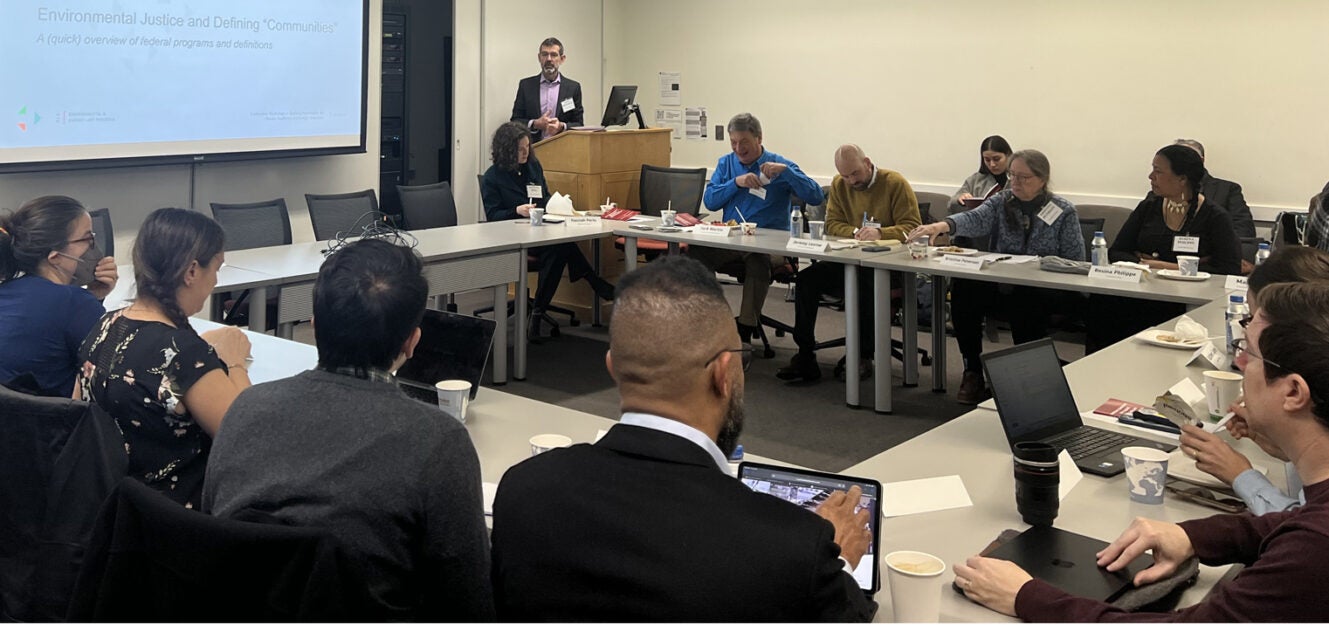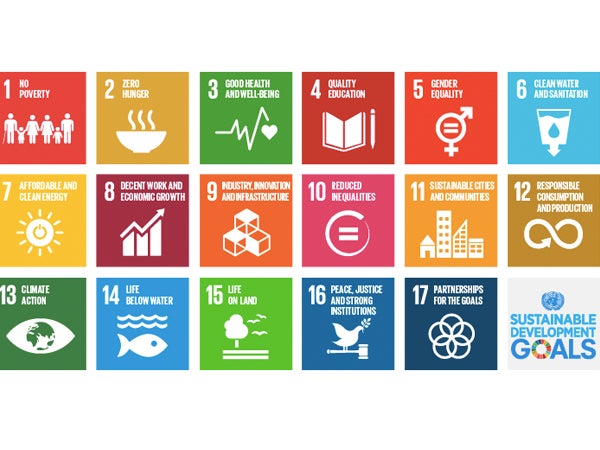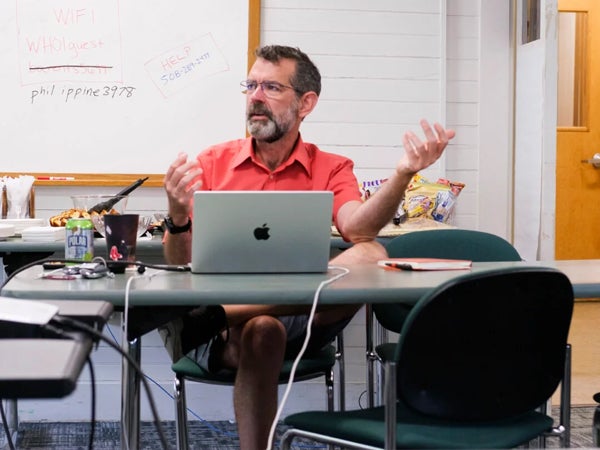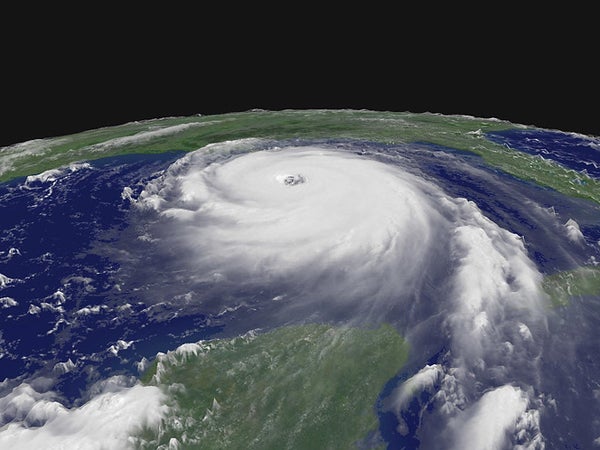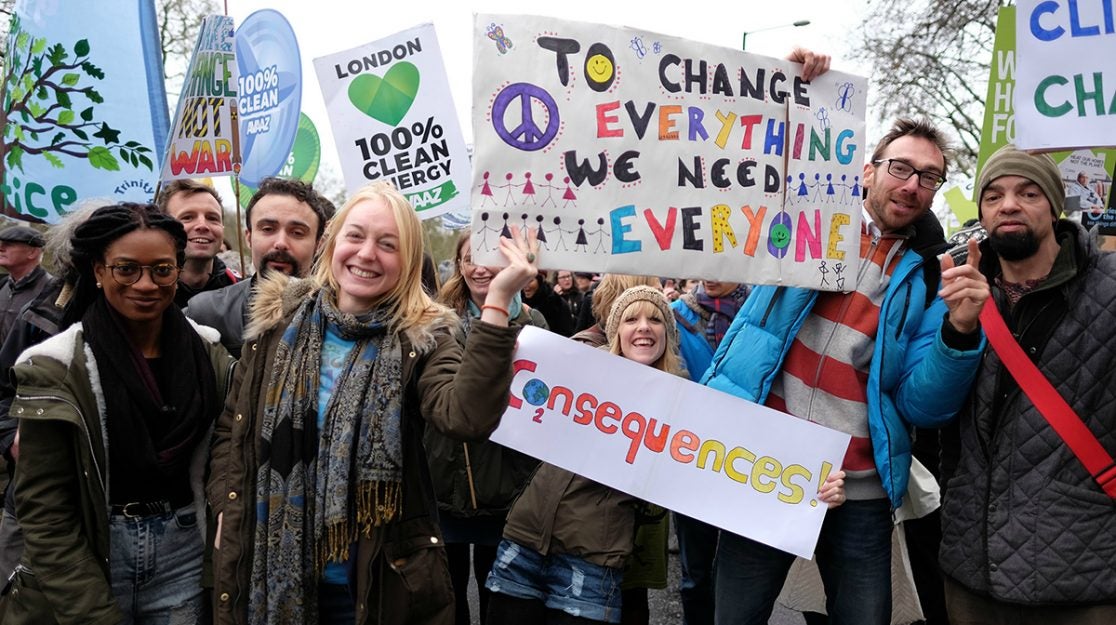The mental health impacts of weather-related disasters, such as hurricanes, have been well studied, but what about the effects of slow-onset climate change (e.g., droughts and temperature changes over longer periods of time) on mental health indicators, such as depression, anxiety, suicide, worry, grief, and frustration? Faculty member Laura Kubzansky is a co-author on this systematic review published in Nature Mental Health that examines the findings of quantitative and qualitative…
Exploratory workshop examines concept of community in context of climate change and energy transition
The Harvard Center for Population and Development (HCPDS) co-sponsored a one-day workshop with the goal of bringing together policy experts and decision makers, researchers, and community-based advocates to explore the concept of “community” recently prioritized by federal legislation as it relates to climate change and energy transition. “Defining community for climate resilience and energy transition,” which was co-sponsored by The Salata Institute for Climate and Sustainability Research at Harvard University…
“Climate change is poised to have enduring and far-reaching consequences on the Sustainable Development Goals related to health”
S (Subu) V Subramanian explains in this piece in Mongabay-India how climate change has a negative impact on India’s progress in achieving the United Nation’s Sustainable Development Goals by 2030. A study led by Subramanian that was published in The Lancet Regional Health Southeast Asia earlier this year that assessed India’s progress in meeting these goals is also cited in this article.
Beckfield leads interdisciplinary faculty and graduate student retreat to develop undergraduate environmental justice curriculum
HCPDS Associate Director Jason Beckfield, PhD, led the first of three pilot retreats aimed at developing undergraduate curriculum in the “emerging field of environmental justice, or the convergence of environmental concerns with equity and civil rights” in response to the 2022 Report on the Future of Climate Education at Harvard University. Read about the retreat that took place at the Woods Hole Oceanographic Institute in The Harvard Gazette. Photo credit:…
Reviewing research on the “deeply social” barriers to combatting the climate crisis
Harvard Pop Center Associate Director Jason Beckfield, PhD, has co-authored a review, published in The Annual of Review of Sociology, of the research that has explored the “social impacts of fossil fuel production and transitions to renewables.”
Synthesizing hope: How to mitigate health disparities after natural disaster strikes
Researchers affiliated with the RISK study have published a study in the journal Health Affairs that summarizes the findings of the 15-year study that followed low-income parents who survived Hurricane Katrina. The lessons learned inform these key priorities: Prevention (improve climate resilience and evacuation planning); uninterrupted health care; less administrative work for survivors; strong community ties; and long-term services for those highly affected. “Our findings can guide policy makers, service…
In honor of Earth Day, a review of the last decade of social science research on the effects of disasters
Three researchers affiliated with the Harvard Pop Center—Mariana Arcaya, Ethan J. Raker, and Mary C. Waters—have published a review in the Annual Review of Sociology that concludes with their concerns about the likelihood of more severe natural disasters due to climate change in the future, and the need for innovative concepts and methods to cope with these environmental and societal challenges. Photo: NASA Goddard Space Flight Center on Flickr
Focusing on the link between democratic governance, climate change, and health inequities
Faculty member Nancy Krieger, PhD, has shared her viewpoint in this piece published in the Journal of Public Health Policy that calls for those in the public health and medical field, in particular, to take practical action steps to better integrate the realms of democratic governance, climate change, and health inequities. She outlines actionable steps, along with information-rich resources, in a table. Photo: Alisdare Hickson on Flickr
U.S. “Silver Tsunami” negatively impacting (and suffering from) climate change
A study finds that aging Americans (a growing population) consume more energy. Learn more about the research findings of Harvard Pop Center faculty member Hossein Estiri and his colleague Emilio Zagheni in The New York Times, the New Scientist, and The Harvard Gazette.
Increase in asthma symptoms linked to wildfire smoke, fine particulate matter air pollution
Harvard RWJF Health & Society Scholar Colleen Reid, PhD, is lead author on a study published in Environmental Research that contributes to the growing body of knowledge of health risks associated with wildfire smoke.
